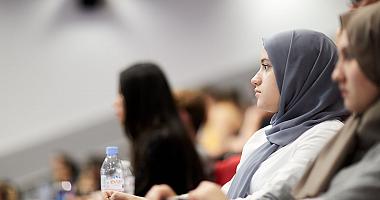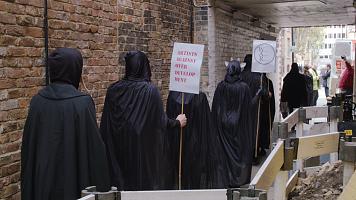Course information
Department
Length
1 year full-time or 2 years part-time
Course overview
This degree brings together the rich work within critical and cultural theory, continental philosophy, cultural studies, and contemporary feminist and postcolonial scholarship.
The MA Sociology (Cultural Analysis) enables you to develop critical and analytical interdisciplinary perspectives on contemporary socio-cultural processes. It offers a sense of the breadth of possible approaches while developing the skills necessary to produce original analyses in a scholarly and inventive manner. You will explore topics like the nature and historical conditions of critique itself, the relations between power and subjectivity, the concept of performativity, cosmopolitics, novel forms of protest, and radical empiricism, among others. These questions cross and connect human and non-human worlds, and involve both aesthetic and historical aspects.
Develop your understanding of the analysis of contemporary culture
You will be introduced to a range of traditions and resources from cultural studies, continental philosophy, postcolonial theory, process philosophy, speculative thought, and critical cultural analysis. Through reading, seminars, and written assignments, you will gain a critical understanding of contemporary cultural processes and central issues in the theory and analysis of contemporary culture.
Tailor the degree to your own interests
The MA Cultural Analysis embraces a transdisciplinary approach that allows students to choose options from within the department and across Goldsmiths to sit alongside the core theoretical and methodological modules. This allows you to take your critical cultural approach into areas that most appeal and feel most urgent to you. You will be able to explore areas of contemporary social and cultural life that interest you most. This flexible MA programme allows you to select options from within and beyond Goldsmiths' Department of Sociology.
Participate in an interdisciplinary community
Students join this MA from around the world, bringing a range of backgrounds, interests, and unique perspectives to discussions. We have welcomed graduates with backgrounds in sociology, politics, and anthropology, as well as the humanities, philosophy, and more creative and artistic pursuits such as dance and architecture. You will become part of the department’s innovative research culture, which includes events organised by the following:
- Centre for Philosophy and Critical Thought
- Unit of Play
- Centre for Invention and Social Process
- Unit of Global Justice
- Methods Lab
- Centre for the Study of Global Media and Democracy
- Centre for Feminist Research
- Political Economy Research Centre
- Centre for Urban and Community Research
Our engagement with the socio-cultural world will take multiple routes, expanding sociological methods to also include approaches that route themselves through its poetic, spatial, fictional, affective, sonic, or visual dimensions as much as through its textual. Previous students have explored: the sounds of Kigali street sellers; the memories of violent events in Bogotá; theories of gender fluidity; philosophies of immanence and biopolitics; and archives of radical rock music in the UK.
By studying this masters, you'll be joining our world-leading Department of Sociology. We've been rated top 10 in the UK for sociology in the QS World University Rankings 2023.
Contact the department
If you have specific questions about the degree, contact the convenor, Professor Vikki Bell.





